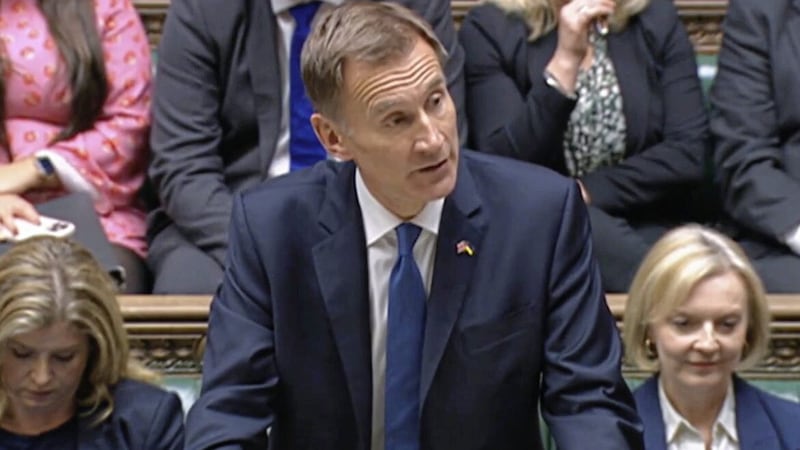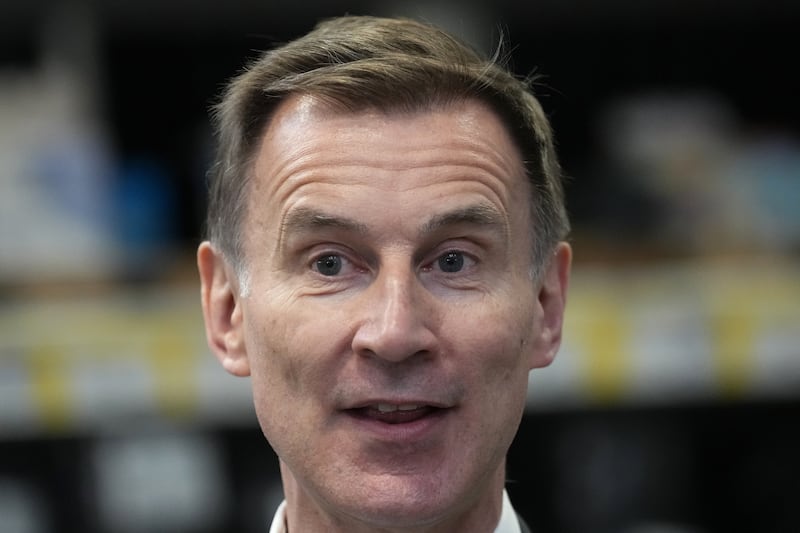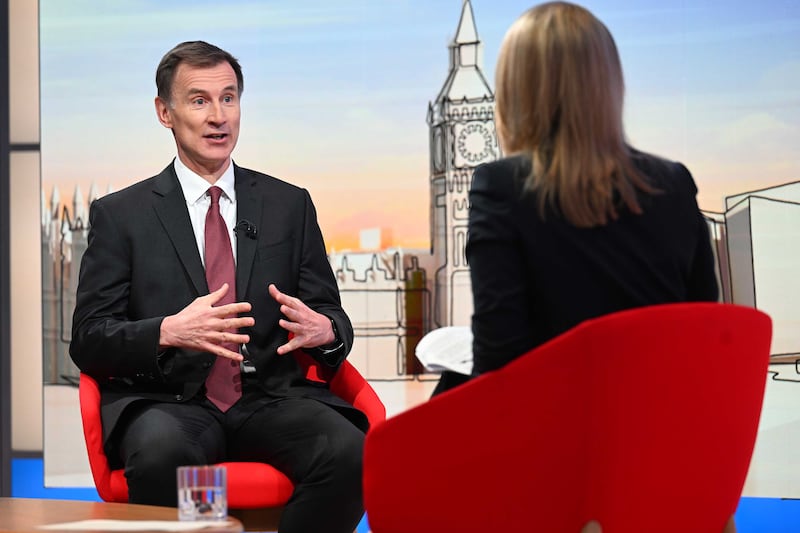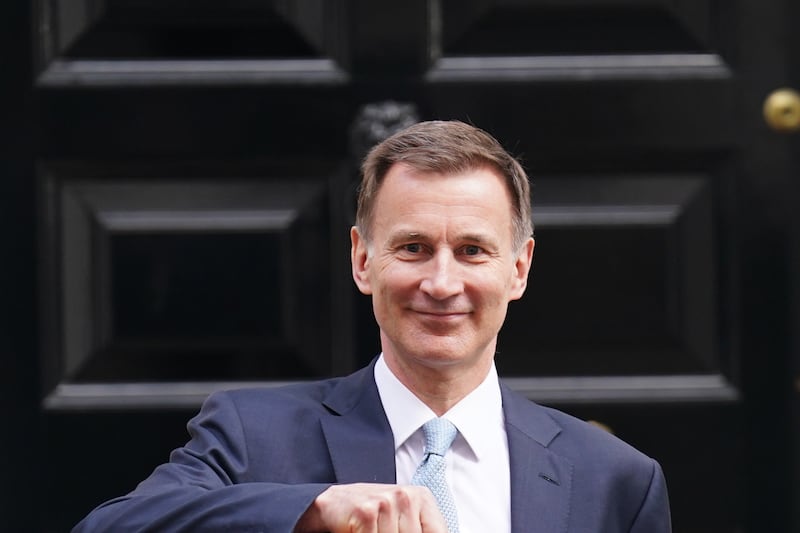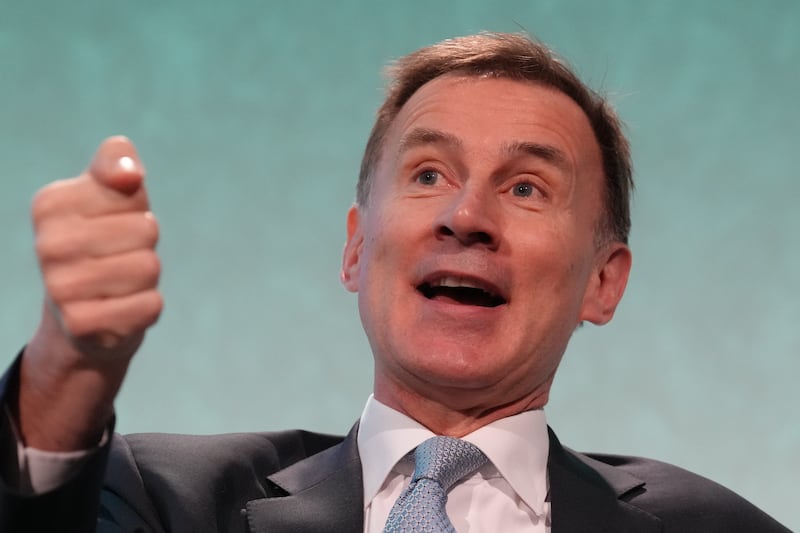THE UK’s latest Chancellor must address energy prices to show he is serious about helping businesses through the cost crisis, the Northern Ireland Chamber has said.
The business body described the major fiscal reversal announced by Jeremy Hunt on Monday as “a necessary intervention”, but expressed concern over the planned review of energy support for firms after April 2023 and the Chancellor’s statement that any support for businesses after that date will be “targeted to those most affected”.
The fourth occupant of 11 Downing Street in as many months, Mr Hunt took the axe to nearly all of his predecessor's mini-budget plans yesterday.
Economists have already reined in their expectations for interest rates in the wake of the massive policy U-turn, but warned more steps will be needed to plug the gaping hole in the UK Government’s finances.
But the consensus on Monday was that the immediate economic calamity may have been narrowly avoided.
READ MORE: Chancellor reverses 'almost all' mini-budget tax cuts
It is thought the Bank of England may not now need to react with such large and rapid rate hikes, which in turn will help see mortgage rates beat a retreat.
The cut to Stamp Duty and the reversal of the National Insurance rise were among the few major policies to survive Kwasi Kwarteng’s disastrous September 23 mini-budget.
NI Chamber chief executive Ann McGregor said keeping support for the National Insurance reversal in place will be “some relief” for businesses, but on its own, she said it will not be enough.
“Whilst we acknowledge that the Chancellor has a delicate balancing act to carry out, he must go further to prove he is serious about helping businesses through the difficult months ahead as rising inflation, interest rates and energy costs continue to dominate the cost of doing business crisis.”
The business body chief repeated the call it made last week for the establishment of an energy taskforce in Northern Ireland to tackle the energy crisis in absence of a functioning executive.
Ulster Bank’s chief economist Richard Ramsey described Monday’s announcement by Jeremy Hunt as “one of the biggest political U-turns of all time”.
He said while much of the focus has fallen on the reversal of the tax cuts, he said the change to the energy support schemes for both homes and businesses was “the most significant” aspect.
“Under Kwarteng, households were to be provided with a two-year price cap on energy costs for two years,” he said.
“This has now been scaled back to April 2023 with a Treasury-led review to consider how to support households and businesses beyond next April.

“The sub-text of this is any support thereafter will be less generous and/or more targeted at those that can least afford it.”
The economist said the new focus on ‘finding efficiencies’ is ominous for Stormont’s departments, which collectively face a projected £660 million overspend in this financial year, which would likely be deducted from next year’s block grant.
“Efficiencies is a polite word for spending cuts,” said Mr Ramsey. “Reversing this spend this year with a £660m offsetting cut in next year’s budget will be painful.
“But the pain won’t stop there. Further ‘efficiencies’ will be required from next year onwards. Not having a functional Executive makes the task for Northern Ireland more difficult.”
Jeremey’s Hunt’s plans to review and taper off energy support from April was described as “flawed” by Stormont’s Finance Minister Conor Murphy on Monday.
“Many will be worried to learn the promised help with their energy bills could soon be reneged upon as part of the Treasury review after April 2023,” he said.
“It is clear the Chancellor is firmly on the road back to austerity,” added the Sinn Féin minister.
Meanwhile, another business survey has highlighted concerns over a looming recession within the north’s business community.
The KPMG 2022 CEO Outlook suggests around half of the chief executives in Northern Ireland are anticipating a recession in the coming year.
The survey, conducted among 1,325 major firms worldwide, includes a small number of company bosses in the north heading firms with annual revenues of at least £460m.
It followed business surveys published by Ulster Bank and NI Chamber in recent days, which identified a steady deterioration in economic conditions in the north.
